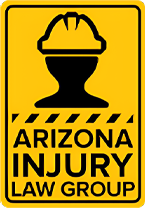Emotionally Dealing with Your Work-Related Accident

If you are seriously injured in a work-related accident, especially if you have lost a part of your body, making it a permanent situation, you may go through some emotional difficulties while dealing with the changes. Not everyone reacts the same way to such changes, either, so each case requires individual assessment on how to help with the recovery process.
Serious and Permanent Losses
When a person at work loses a limb, the loss of a part of one’s self is emotionally traumatic; aside from the physical trauma, there will be stages that patients go through as the patient recovers from the loss. Typically, we view this as the stages of the emotional journey in dealing with grief from loss. We choose four levels that reflect the most prevalent levels most people go through.
- Denial
People have a hard time dealing with their loss and that their life is forever changed from what it used to be. There is confusion in figuring out what should be done next, and the stress of not knowing what to do can cause emotional outbursts caused by fear of the unknown. Sometimes, patients are not able to deal with the circumstances and want to be left alone. Patients may not want to see their family members and friends, although this may be exactly what they need to begin the recovery process.
- Anger
The level of anger that can occur on this level, such as blaming another person for carelessness in causing the accident, can reach extreme levels. When people love the jobs they are in, such as playing in professional sports (football, baseball, hockey, etc.) and now they cannot play anymore, the loss of a beloved career is devasting. The desire is still there, but the patient can only dream about it now and is aware there is no opportunity to return to what the patient loved doing most of all in life. Such devastation can mentally injure a patient without proper therapy to address it.
- Depression
At this level, the patient comes to the realization that nothing else can be done to return to one’s former level of physical perfection, i.e., being fully intact and agile once again. The patient fully understands that the patient’s current situation is all that is left, physically. The patient may need significant loving attention from family and friends in order to regain a sense that the patient is still loved the same way as before.
- Acceptance
The patient understands that this situation is what it is and begins looking at ways to redefine how to live life again in other ways. This is the point where a positive approach to regaining the process of living begins to develop in the patient. There is an understanding that all is not lost; it is just different.
Change is always scary, and most people vehemently avoid it. Some are thrust into change unexpectedly, and once the situation is understood emotionally, and that there are other ways to live life, then positive recovery begins. It is important that the patient receives positive encouragement from those most often around the patient, although it must be realistic encouragement as well.
Once the emotional side of the patient moves into a positive mental state, the physical body will also respond positively to recovering. While we initially treat the body first, the emotional side of the patient is equally important in treating, while going through those stages to acceptance and looking for new ways to live life.
If you need help with your workers’ compensation claim or need help with medical resources, call us at once for a consultation. 602-346-9009.
Get Help Today
Call Immediately For A Free, No Obligation Consultation And Let Us Help You Put Your Life Back On Track. Let Us Help You
Regain Normalcy And Stability Again. We Want To Help You Get The Benefits You Need And Deserve!


